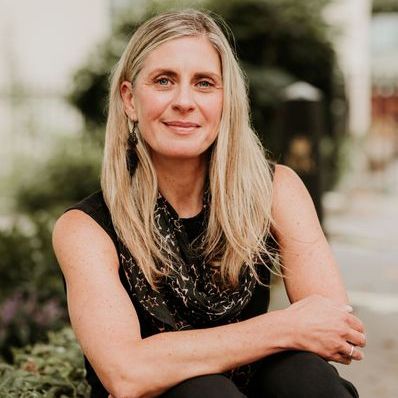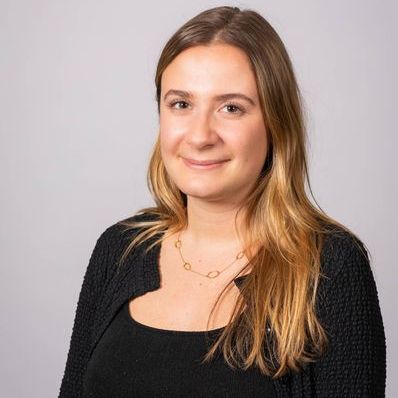What is the Open Referrals project – and how does it tie into the Open Referrals UK data standard?
The SICCAR team is working with CAST to build a scalable and re-usable tech prototype to support referrals into and within the voluntary sector. This project is based on the Global Open Referrals framework and data standard to improve the referral process for people, their family, and carers.
The Open Referrals UK data standard provides a mechanism for describing voluntary sector organisations and the services that they provide. Its main purpose is to make it easier for those interacting with the voluntary sector to find organisation and their services.
Currently, local authorities keep their own lists of voluntary sector organisations - in paper files, spreadsheets, and databases – so that social prescribers, whose role it is to refer people to voluntary sector services for their health and well-being, are able to find suitable services and make referrals.
Over time voluntary sector organisations can come and go or change the services they provide. Changes are generally shared informally - updating the lists is ad-hoc and based on who and what you know. This is limiting. The lists are hard to maintain and rarely accurate or up to date, making the job of social prescribing challenging.
For the voluntary sector organisations, there is a benefit in being able to publish information about themselves and their services, to make sure that local authority records are up to date, so that they can actively manage the demand for and their capacity to deliver services.
This is what the CAST Open Referrals project, which started in 2021 and is part of Catalyst, is all about - implementing the Open Referral UK data standard to enable voluntary sector organisations to publish information about the services that they provide, and other organisations being able to search and find them in an efficient way.
What is the impact of Open Referrals?
Voluntary organisations register with The Charity Commission (OSCAR in Scotland).
However, this only affirms that you are a charity - it doesn’t include information on the services you provide. For instance, it could say that you’re an organisation that provides support services to abused women, but it doesn’t specify what these services are. Does the charity provide refuge, or counselling? There is a multitude of services that an organisation could provide under the category of women's protection services.
Because there are so many services and everyone describes them differently, we need to standardise terminology. One of the main purposes of the CAST Open Referrals project is to adopt a taxonomy – or a standardised set of terms – to describe these services.
The Open Referrals UK data standard is an enabler, rather than the driver, of more efficient and effective voluntary services. It provides a standard means where everyone describes their services in the same way, which will allow services to be found more easily.
In some regions, for example Edinburgh, there are already systems in place that provide a register of Charities and voluntary sector organisations. However, these systems are designed to be used in that locality. A key aspect of using the Open Referrals standard is that the system is being designed so that it can be shared and re-used in different localities and Health and Social Care ecosystems. This will be a key technology enabler for social prescribing, and in some cases allow for more sophisticated referrals.
What are the benefits of using Distributed Ledger Technology (DLT) to facilitate Open Referrals?
DLT facilitates collaboration, and it sets good foundations for the longer term. This comes back to the self-maintenance of the register. The current systems that support voluntary sector referrals in different local ecosystems, require voluntary sector or local authority workers to keep them up to date with the latest information from all the voluntary sector organisations in the area. But this is time-consuming and inconsistent.
A key to Open Referrals is that the voluntary sector will self-publish and maintain their records about their organisation, the services that it delivers and where and when those services are available. Our CAST project – which utilises the Open Referrals standards - is built on the SICCAR distributed ledger platform. Using DLT means that the data isn’t owned or controlled by a local authority or an umbrella voluntary sector organisation – it is decentralised and therefore owned and controlled by the individual organisations.
This is just the start. Future iterations of the solution will allow social prescribers to make referrals and exchange data about the person being referred. And voluntary sector organisations will be able to report the health and social care outcomes that they deliver. Learn more about this service design here.
Is there a difference to the standards in the UK vs internationally?
The UK standards are an extension of the international standards. Basically, they are a refinement. In the UK we know more about UK voluntary sector services – there are reviews of services, a notion of when a service is available and when it was last checked, eligibility criteria etc. SICCAR has implemented the standards in the real world and added some refinements to make them fit for purpose.
Do Open Referrals allow for better utilisation of the third sector?
Definitely. Even more importantly, they can help deliver the best outcomes for the people in need, and service more people in need. For the voluntary organisations, we can start collecting data on organisation’s usage. We can report on data, such as how many individual referrals are made and how they are rated. This will really emphasise the value of the third sector and potentially provide the justification for ongoing funding.






